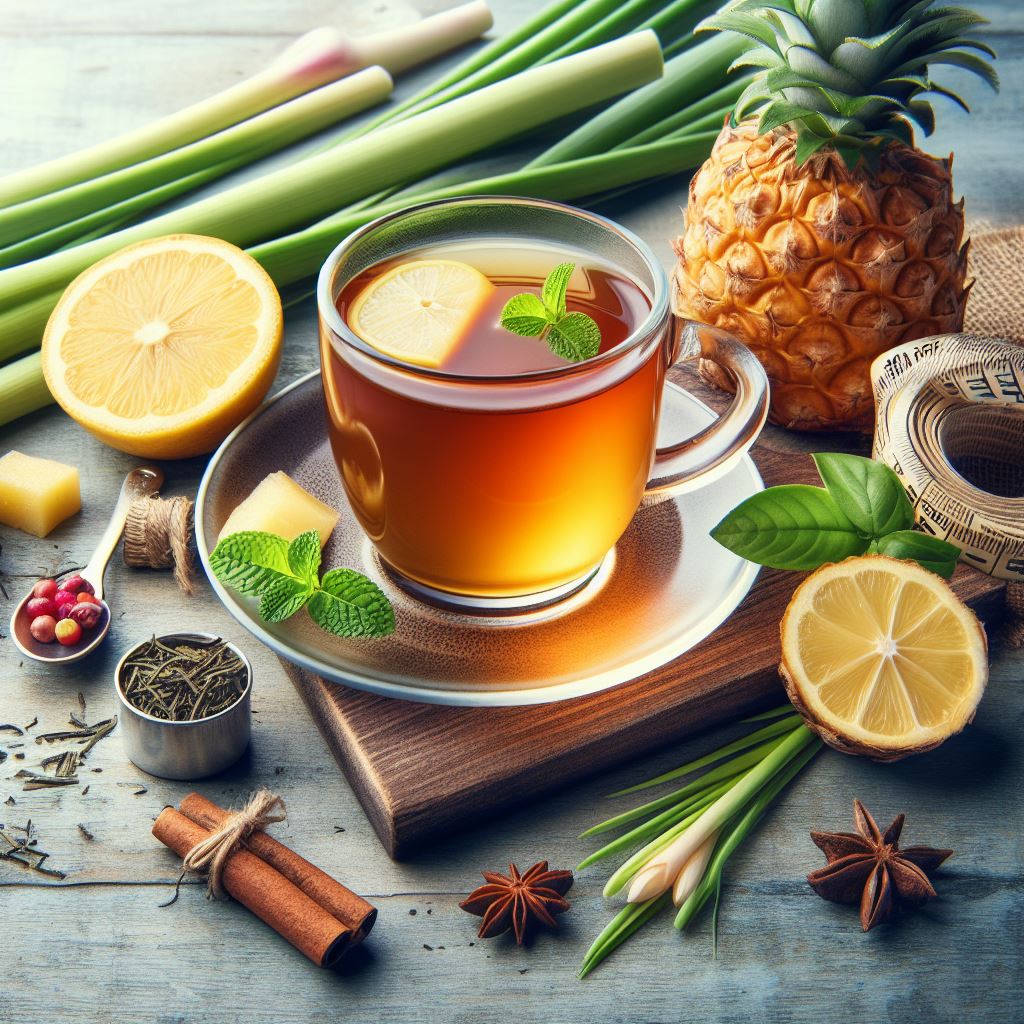Have you ever wondered if your plants are happy? Do they have a sense of purpose and meaning in their lives? Do they feel fulfilled by their role in the ecosystem? Or do they suffer from existential angst and despair, questioning their existence and place in the universe? If you are a plant lover and a tea lover, you might be interested to know that some teas can actually help your plants cope with their existential crisis. So worry no more and discover the best teas for your plants, and more!

The Best Teas for Your Plants’ Existential Crisis
Tea is not only a delicious and healthy drink for humans, but also a source of nutrients, antioxidants, and beneficial compounds for plants. Tea can boost your plants’ health, growth, and resilience, as well as provide them with some comfort and joy.
But not all teas are created equal. Some teas are better suited for certain plants than others, depending on their preferences and needs. For instance, some plants like acidic soil, while others prefer alkaline soil. Some plants need more nitrogen, while others need more potassium or phosphorus. Some plants enjoy tannic acid, while others are sensitive to it.
So how do you know which tea to use for your plants? Here are some tips and suggestions based on the type of tea and the type of plant:
Tea Leaves for your Plants
Raw tea leaves are great for feeding your plants. They contain nitrogen, potassium, phosphorus, tannic acid, aluminum, fluorine, and manganese¹. These elements can help your plants grow stronger, healthier, and more resistant to pests and diseases.
With that in mind, be wary not to overdo it. Too much of these elements can also harm your plants by slowing down their growth or causing toxicity¹. You should also avoid using tea leaves that have been brewed with milk or sugar, as these can cause wilting or mold².
To use tea leaves for your plants, you can either sprinkle them directly on the soil or add them to your compost pile. You can also make a tea leaf mulch by soaking them in water for a few days and then spreading them around your plants. This can help retain moisture, suppress weeds, and regulate soil temperature².
Green Teas for your Plants
Green tea in the form of liquid is just as healthy and beneficial for plants as it is for humans. It has a high concentration of antioxidants, especially catechins, that can protect your plants from oxidative stress and environmental damage¹. Green tea can also stimulate root growth and enhance nutrient uptake¹.
Green tea is best suited for plants that like acidic soil, such as azaleas, camellias, rhododendrons, roses, ferns, hydrangeas, and orchids². You can brew green tea with boiled (not boiling) water and let it cool down before watering your plants with it. You can also spray green tea on your plants’ leaves to prevent fungal infections².
Black Teas for your Plants
As with normal tea and green tea, black tea also contains tannic acid and a variety of nutrients for plants¹. However, black tea is more oxidized than green tea, which means it has a lower antioxidant content but a higher caffeine content¹. Caffeine can have both positive and negative effects on plants.
On one hand, caffeine can stimulate plant growth and metabolism by increasing photosynthesis and respiration¹. On the other hand, caffeine can also inhibit germination and seedling development by interfering with DNA synthesis and enzyme activity¹. Therefore, black tea should be used sparingly and cautiously for your plants.
Black tea is also more suitable for plants that like acidic soil than those that prefer alkaline soil². You can use black tea in the same way as green tea: brew it with boiled water, let it cool down, and water or spray your plants with it.
Herbal Teas for your Plants
Herbal teas are made from various herbs, flowers, fruits, spices, or other plant parts that have different properties and benefits for plants. Some examples of herbal teas that are good for plants are chamomile, willow, mint, lavender, rosemary, thyme, sage, lemon balm,
and nettle³⁴.
Herbal teas can provide your plants with various nutrients and minerals that they may lack in the soil. They can also help your plants cope with stress, pests,
diseases, and environmental factors. For example:
- Chamomile tea can soothe your plants’ nerves and calm their anxiety. Chamomile is also a natural fungicide that can prevent damping off and other fungal diseases¹³. Chamomile tea is good for plants that like acidic soil, such as herbs, vegetables, and fruits². To make chamomile tea for your plants, you can use fresh or dried flowers and steep them in hot water for a day. Then strain the tea and use it to water or spray your plants¹.
Willow Teas for your Plants
Willow tea is a natural rooting hormone that can help your plants grow new roots or cuttings. This tea contains salicylic acid and indolebutyric acid, which are compounds that stimulate root formation and growth⁴. Willow tea can also help your plants fight off bacterial infections and pests⁴.
Willow tea is suitable for most plants, especially those that need more water, such as hydrangeas, roses, and willows themselves⁴. To make willow tea for your plants, you can use fresh or dried twigs and leaves from any type of willow and soak them in water for a few days. Then remove the willow parts and use the tea to water your plants or dip your cuttings in it before planting⁴.
Other Teas for your Plants
There are many other teas that you can use for your plants, depending on their needs and preferences. Here are some examples:
- Mint tea can repel aphids, ants, and other pests that may bother your plants².
- Lavender tea can attract bees and other pollinators to your garden².
- Rosemary tea can enhance the flavor and aroma of your herbs².
- Thyme tea can prevent fungal infections and mildew on your plants².
- Lemon balm tea can deter mosquitoes and other insects from your garden².
- Nettle tea can provide your plants with iron, calcium, magnesium, and other minerals⁴.
To make any of these teas for your plants, you can follow the same method as for chamomile tea: use fresh or dried plant parts, steep them in hot water for a day, strain the tea, and use it to water or spray your plants.
Conclusion
Tea is not only a wonderful drink for humans, but also a helpful ally for plants. Tea can help your plants cope with their existential crisis by providing them with nutrients, antioxidants, hormones, and other compounds that can boost their health, growth, happiness, and resilience.
However, not all teas are suitable for all plants. You need to consider your plants’ preferences and needs when choosing which tea to use for them. You also need to be careful not to overuse tea or use tea with milk or sugar, as these can harm your plants.
By using tea wisely and appropriately for your plants, you can create a harmonious relationship between you, your plants, and your tea. You can enjoy a cup of tea while admiring your beautiful and healthy plants. And who knows, maybe your plants will enjoy a sip of tea too!
I hope you enjoyed this blog post about the best teas for your plants’ existential crisis. If you did, feel free to share it with your plant and tea-loving friends and leave a comment below. And if you have any questions or suggestions about using tea for your plants,
please feel free to contact me. I would love to hear from you and learn more about your tea and plant adventures.
Check out some of our other interesting tea-related articles!
- How to Pair Food with Tea: A Flavourful and Fun Guide
- The Art of Re-Steeping: How to Enjoy Multiple Cups of Flavour
- How To Strain Loose Leaf Tea Without a Strainer: 7 Easy Methods
- Brew Your Way to Mindfulness: Tea and Meditation
- Decaf Teas: Everything You Need to Know
Thank you for reading and happy gardening! 🌱🌼🍵
Sources:
- Chamomile Fungicide for Plants + How to Treat Damping Off – Garden Therapy.
- How to grow Chamomile | RHS Herbs – Royal Horticultural Society.
- Chamomile Tea Uses In Gardens – Benefits Of Using Chamomile Tea For Plants.
- How to Make Chamomile Tea: 5 Recipes From Simple Tea to a Hot Toddy.
- Tea for Plants – When It Can Help & When It Can Hurt – WhyFarmIt.com.
- Using tea leaves in the garden – to boost your plants’ health.
- Grow your own cup of tea / RHS Gardening – Royal Horticultural Society.
- Is Tea Good for Plants? – gardeningminded.com.
- The Best Compost Tea Recipe | Eartheasy Guides & Articles.





Leave a Comment